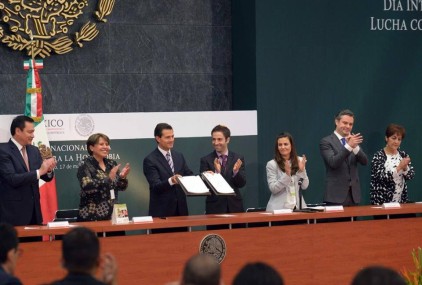
ARROW for Change new issue: Sexual and Reproductive Health and Rights, and the Internet
What are the relationships and interdependencies influencing the promises of being online: voice, visibility, and power? This ARROW for Change (AFC) issue on sexual and reproductive health and rights (SRHR) and the internet documents some of these dynamics.

Local Representation and Party Politics: Transexual and Travesti Candidates in Brazil
At a time in which electoral processes are undermining democracy not only in Brazil, but also in many other countries, electoral results can give in sight to many questions regarding the foundations of the democratic process.

Gender politics and plebiscite in Colombia: statement
During the peace plebiscite campaign, opposition to the so-called gender ideology became pivotal in uniting the extreme right, various Christian organizations and some sectors behind

Articles and analysis on BRICS
How relevant is BRICS today? – AlJazeera BRICS fantasies and unintended revelations – Pambazuka

Did an Anti-LGBT Panic Help Defeat Colombia’s Peace Deal?
Read the full article on American Quarterly When thousands of Colombians protested on August 10 to demand the resignation of the country’s openly gay education
Emerging Powers, Sexuality and Human Rights at the AWID Forum
The session examined how the geopolitical shifts implied in the articulation of these global South countries in new blocs, especially the BRICS, has generated expectations that this emergence of “powers from the South” would eventually open up space for new platforms for the political work on sexuality, gender and human rights, that would not be caught by overlapping North-South tensions (or post-colonial effects) that perennially cross these fields of debate.
Oral histories of LGBT people in Mongolia
Originally posted by ЛГБТ Аман түүх at lgbtamantuukh on 04/07/2016. Available at: https://lgbtamantuukh.wordpress.com/2016/07/04/welcome-to-the-lgbt-oral-histories-of-mongolia-project/ Sponsored by the LGBT Centre (Mongolia)’s Youth Leadership Program, Batchimeg S. and
The ‘state’ and sexual politics: An interview with Gloria Careaga
On March 2016, we relaunched our Spanish website that (among other things) provides access to the Spanish translation of Queering the Public Sphere in Mexico

New GenderIT edition: three key issues for a feminist internet: Access, agency and movements
The Feminist Principles of the Internet arose from the first Imagine a Feminist Internet meeting in 2014 in Malaysia. The meeting brought together 52 women’s rights, sexual rights and internet rights activists from six continents to discuss one question: “As feminists, what kind of internet do we want, and what will it take for us to achieve it?”
Brazil: The conservative restoration and sexual politics
It is not exactly to keep track of the Brazilian political development these days. On May 11th, the Brazilian Senate confirmed the admissibility of the impeachment of President Dilma Rousseff, which had been approved by the House on April 17th.




